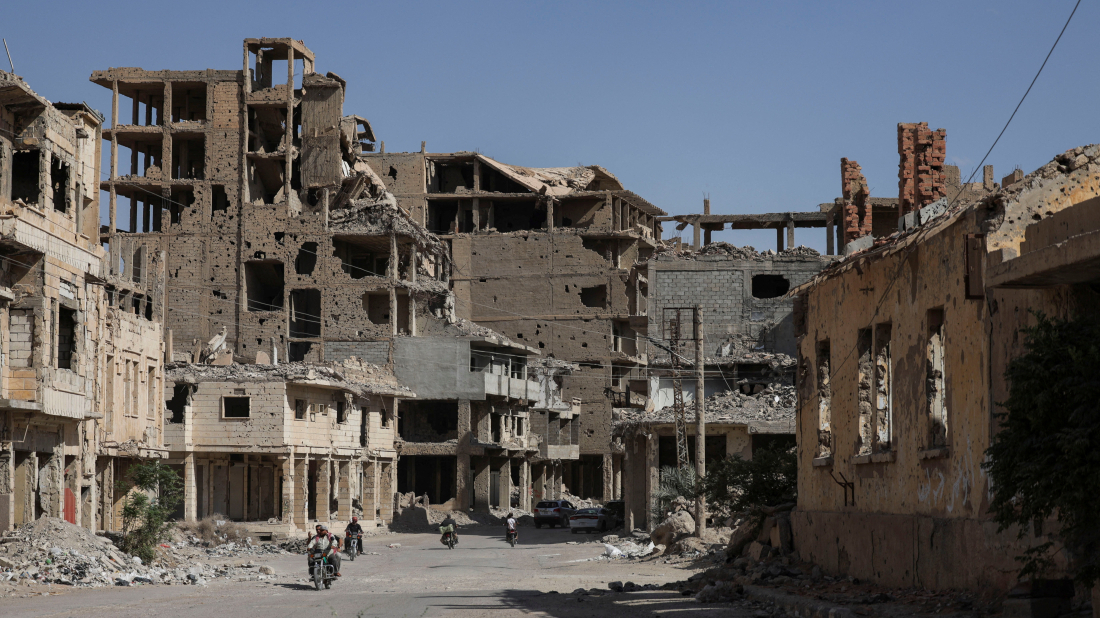Kremlin cautions against expecting progress on first day of Geneva talks
The Kremlin has sought to lower expectations ahead of the latest round of Ukraine peace talks in Geneva, saying no announcements should be expected on...

Syria will hold an indirect vote on Sunday to establish its first parliament since Bashar al-Assad was ousted, a key step in the transition from his rule but one that has stirred concerns about political inclusivity under the country's new leaders.
The process is unfolding as President Ahmed al-Sharaa tries to consolidate his hold over a nation fractured by 14 years of war and recent bouts of sectarian violence that have fuelled suspicion of his Islamist-led administration among minorities.
The election is an indirect one, with regional electoral colleges, made up of a combined 6,000 electors, set to pick two-thirds of the 210-seat parliament. A committee appointed by Sharaa has approved 1,570 candidates.
Al-Sharaa, a former Al Qaeda fighter whose rebel forces toppled Assad in December, will then select the remaining third of the seats.
The authorities say they resorted to this system rather than universal suffrage due to a lack of reliable population data and following the displacement of millions of Syrians by the war.
Citing security and political reasons, they also decided to postpone the process in the northeast, held by Kurdish-led authorities, and in the province of Sweida, largely held by Druze armed groups. That means 19 seats in parliament are expected to be left empty.
Inclusivity concerns
Critics have slammed those moves, saying a partial and indirect vote is unrepresentative and too centrally managed.
The eastern city of Deir al-Zor is a stark example. The winding Euphrates river divides it in two: the government-held western half where a vote will be held, and the Kurdish-controlled east with no election.
"It does not satisfy me that there are elections there, and here there aren't. We want something that serves the whole region. Syria is united," said Hassan Mohamed Dalli, a resident of the eastern bank.
Critics say the process also fails to guarantee the participation of women or religious and ethnic minorities.
Women make up at least 20% of candidates in just a quarter of electoral districts. But in half of the districts, 10% or fewer of the candidates are women. No quotas have been set for women or minority lawmakers.
Women fared no better under the Assad family's rule. They also had no quotas in parliament then, and female lawmakers made up only 6% to 13% of the legislature from 1981 until Bashar was toppled, according to the Inter-Parliamentary Union, which collects data on national parliaments worldwide.
The parliament was slightly larger under Assad, with 250 seats of which two-thirds were reserved for members of his Baath party. The last elections, in July 2024, were labelled a farce by Assad's opponents.
Analysts say that the current winner-takes-all voting system could produce a result dominated by men from Syria's Sunni Muslim majority.
This may put the onus on Al-Sharaa, who has repeatedly promised inclusivity, to use his third to appoint female lawmakers and members of minority groups. But observers worry that he could also use appointees to centralise power.
"If the president selects individuals subject to his influence, he could issue laws through decrees without effective challenge," Haid Haid, a senior fellow at the Arab Reform Initiative, wrote in an analysis of the process.
"This moment could either legitimize a fragile transition or deepen long-standing public cynicism."
Iran’s Supreme National Security Council Secretary Ali Larijani said the United States could evaluate its own interests separately from those of Israel in ongoing negotiations between Tehran and Washington.
Cuba’s fuel crisis has turned into a waste crisis, with rubbish piling up on most street corners in Havana as many collection trucks lack enough petrol to operate.
Norway is holding a commanding lead in the medal standings with 12 golds and a total of 26, with Italy having an historic performance on home soil on the ninth day of the Milano-Cortina Winter Olympics on Sunday (15 February).
Iran’s Revolutionary Guards navy held military exercises in the Strait of Hormuz on Monday (16 February), state-linked media reported. The drill took place a day before renewed nuclear negotiations between Tehran and Washington in Geneva.
The Somali Army carried out a targeted airstrike in southern Somalia, killing 15 al-Shabaab militants, the country’s Defence Ministry said on Sunday.
The Kremlin has sought to lower expectations ahead of the latest round of Ukraine peace talks in Geneva, saying no announcements should be expected on Tuesday as negotiations continue behind closed doors.
Bangladesh Nationalist Party (BNP) leader Tarique Rahman was sworn in as prime minister on Tuesday (17 February), marking an important political shift in the South Asian nation following a period of turmoil.
Iranian Foreign Minister Abbas Araghchi has described the second round of indirect nuclear talks with the United States as a "good start" as negotiations concluded on Tuesday (17 February) at the Omani consulate in Geneva.
Spain’s government has instructed prosecutors to investigate social media platforms X, Meta and TikTok over the alleged creation and dissemination of AI-generated child sexual abuse material, Prime Minister Pedro Sánchez announced on Tuesday.
Jesse Jackson, one of the most prominent figures of the modern American civil rights movement and a two-time candidate for the Democratic presidential nomination, has died at the age of 84, his family has announced.
You can download the AnewZ application from Play Store and the App Store.

What is your opinion on this topic?
Leave the first comment